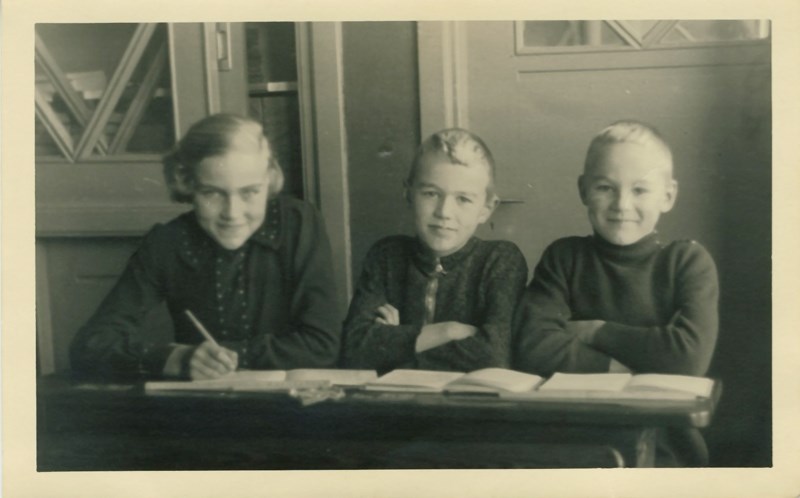Every year we have fewer war veterans left, who fought in World War II. Yet, there are still some seniors in our midst who have vivid memories of living through that war. What follows is a true account of my father’s story. Andy Viersen is now 85, and has spent many hours telling his children and grandchildren what it was like to live in Holland in those years. He clearly recalls the anxiety, hardship, fear and eventual relief and jubilation when Canadian soldiers marched through the streets proclaiming liberation to the Netherlands.
It all started with the radio. Andy was nine years old when his father made the investment of a fine Telefunken German-made radio, which was the best in those days. Sitting together as a family they could listen to voices and beautiful music that carried over the air waves. It was marvellous. It was through this radio that the voice of a man called Adolf Hitler came over the air waves into the living room. Andy’s parents prepared their family for the idea that Holland might be involved in a war, even though they were promised neutrality.
The next change in Andy’s life was that his school was taken over by the Dutch army. This resulted in Andy having to go to school only every other day, as two of the town’s schools had to share one facility. Andy remembers playing games right around the Dutch soldiers as they were training.
On May, 1940, the distressing news came, that Hitler’s army had treacherously invaded Holland. Rotterdam, the important harbor city, had been bombed and completely destroyed. Andy can still recall the family sitting around the radio with open mouths, listening to stories about German soldiers jumping out of planes in something called parachutes. This was something they had never heard of before. These were well-trained young men mostly between the ages 18-20. On the second day of the war orders were given by the Dutch Government that the farmers had to put tall sticks in their fields to prevent German planes from landing. The Dutch army fought bravely but were overwhelmingly outnumbered.
Soon the Viersen family could hear the Dutch Queen, Wilhelmina, addressing her people over the radio. She informed us that the Netherlands had surrendered. She and her cabinet had fled to England, leaving the German army to take over the country of Holland.
Life went on, and the children went back to school. Now there were German soldiers in the camp next to the school, all young fellows. They impressed the town by parading down the streets, clicking their steel heels in exact rhythm, and singing their war songs in majestic harmony.
There were other changes as well. Horses, cows, and pigs had to be ear tagged, to make sure they could not be sold. The enemy soldiers had a lot of Dutch money and the stores did good business but they were unable to restock.
Within a year there were all sorts of shortages, and rationing began. All adults needed a personal identification card with photo and finger prints. Although Andy’s dad tried valiantly to sand his thumb print smooth, his ID card showed the print as clearly as ever.
It did not take long and many of the young Dutch men were called up to go to Germany to work in factories, except most farmer boys, since food production was very important.
The treasured radio was still in the living room, but its messages had changed. It was now strictly controlled by the Germans, sharing only messages that praised the German Government. They called it Propaganda.
The family soon learned that if they could find the short wave radio stations from England, called “Radio Orange”, they could hear occasional messages from their beloved Dutch Queen. The Germans first tried to jam the station with noises, but when they found that people could still hear messages they ordered all radios to be handed in.
Andy’s father still had an old broken radio somewhere, and he brought that to the collecting station when the Germans demanded all radios. The Telefunken radio was hidden in the hay, and later in the linen closet behind the bed sheets, so that the family could still listen now and then. But, it was very dangerous. If someone was caught with a radio, he or she could be shot on the spot.
Watch for Part II next week



